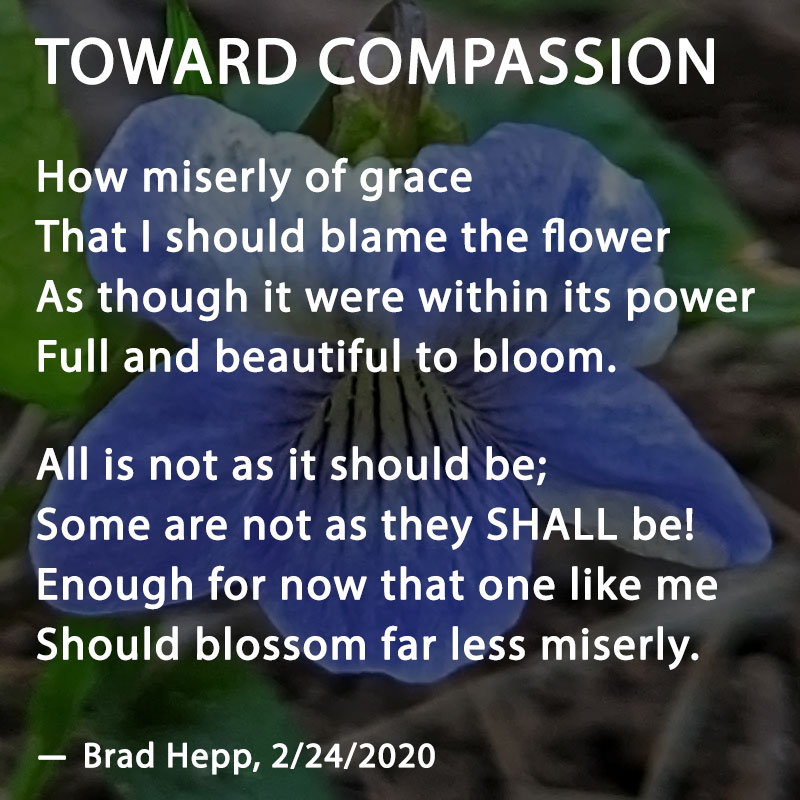
Commentary
This poem is about judging others harshly, and the need to deal with my lack of grace.
“Miserly of grace”
I may be leaning on questionable grammar here. The point is that I am being miserly in my exercise of grace.
“That I should blame the flower”
This poem is about my attitude toward people, not toward flowers. But I draw on the analogy of judging flowers harshly. Ridiculous, huh? If I can see the folly of that, maybe I can extend the lesson to my harsh judgment of people.
A NOTE FOR THE CONTRARIAN:
You may ask, “Don’t people have more control over their own behavior than flowers do over how well they bloom?” Yes and no. Since we have a will, we can choose to make progress in the refinement of our behavior. But progress can be slow. We all have backgrounds that predispose us to failure in particular areas. For example, a person who was abused as a child may WANT to be more trusting of their friends and partners, but the channels of mistrust run deep. We ALL have deep-rooted emotional baggage. Some of it results in easily-recognized behavioral problems. Some of it results in masked arrogance (or is that the mask of arrogance?).
“Some are not as they SHALL be”
This line moves from the universal problem of a fallen creation (flowers and people) to a smaller set of people. Who are they? It refers to those who trust in Jesus Christ. They expect someday to be resurrected with a glorified body — and mind! — similar to what He has. Now, they are frustrated in their attempts to be better people. Then, their limitations will be lifted.
“Enough for now that one like me”
Here, I look in the mirror. If I insist on judging and demanding change, I should demand it of myself.
“Should blossom far less miserly”
Back to the flower metaphor…. If I’m going to judge how flowers — and people — bloom, I should make sure that I am blooming well, that I am being generous with grace.
